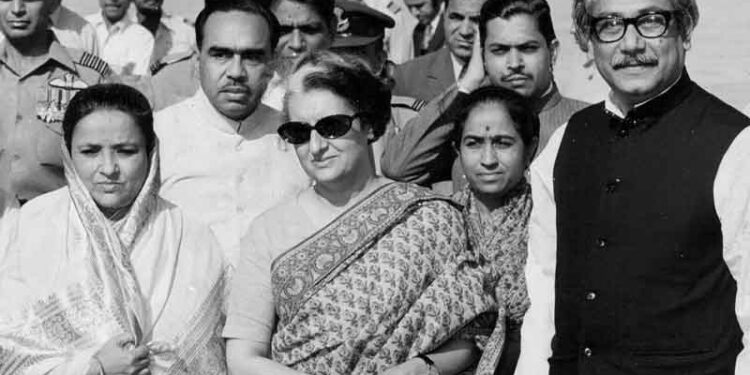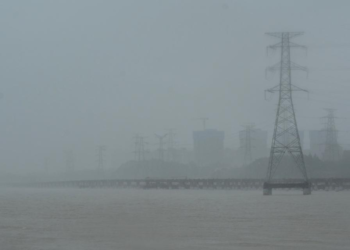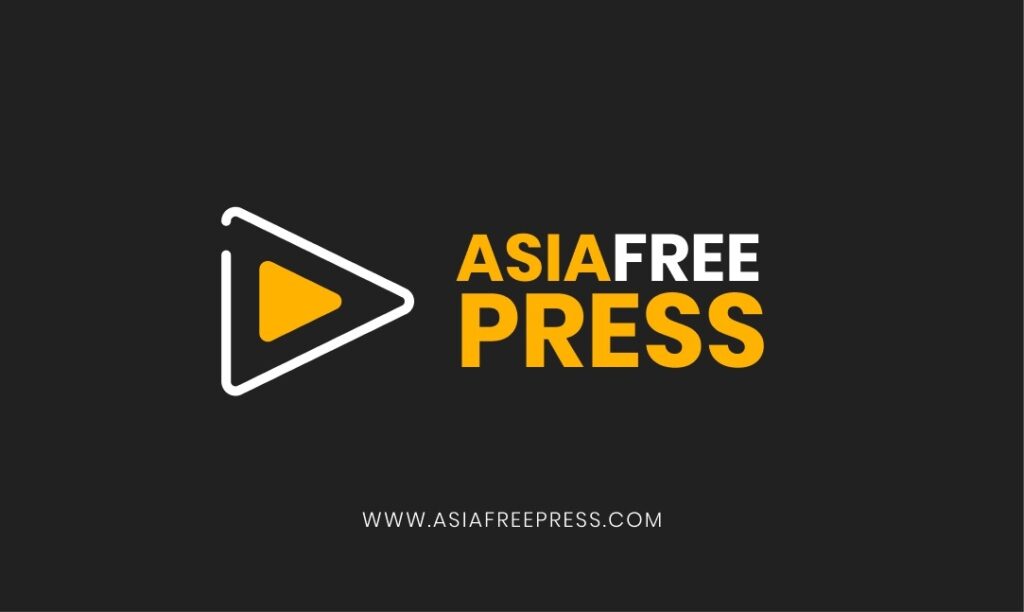A lot has been written and discussed since 16 December 1971, yet the debate continues whether Sheikh Mujibur Rahman aspired to become the prime minister of a united Pakistan or an independent Bangladesh. This article is an attempt to shed some light on this contested question and let the reader decide for themselves.
On 23 February 2011, the deputy speaker of the parliament Mr Shawkat Ali who was one of the accused in the Agartala Conspiracy Case told parliament that the charges brought against the accused were not false. “The charges against us read out on the first day of hearing in the case were absolutely right. We formed a Sangram Parishad led by Bangabandhu to free East Pakistan through armed protest.”
On 6 January 1968, the government of Pakistan declared that 28 out of a total of 35 criminals had been arrested on the charge of conspiring to secede East Pakistan and declare independence. The accused included Sheikh Mujibur Rahman had visited the town of Agartala in India near the border with East Pakistan to discuss plans for secession with Indian intelligence officers at the behest of Indira Gandhi.
During the June trial, all conspirators including Mujibur Rahman pleaded not guilty of plotting to deprive Pakistan of its sovereignty by an armed revolt with weapons, ammunition and funds provided by India. In East Pakistan trouble started when Mujib’s name was announced as an accomplice in the conspiracy since he was in prison and people questioned how he could participate in the conspiracy if he was in prison. These suspicions grew stronger over time since the Pakistani government did not offer any convincing explanation.
Agartala case’s initiation led to a dire situation in East Pakistan with strikes and civil disobedience. Faced with a mass opposition movement, the Pakistan government was ultimately compelled to withdraw the Agartala Conspiracy Case on 22 February 1969. Mujib and his other co-accused conspirators were released. Following these events, the Central Students Action Council of the Awami League arranged a reception on 23 February 1969 at a racecourse in Dhaka, where over one million loyal attendees flocked and conferred Mujib with the epic title of ‘Bangabandhu’— friend of Bengal.
Since Ayub’s regime failed to quell the uprisings and create stability in the nation, on 26 March 1969, the commander-in-chief of the Pakistani armed forces, General Yahya Khan, put martial law into effect, bestowing upon himself the title of chief martial law administrator. Four days after putting martial law into effect, General Yahya Khan revoked the Constitution of 1962 and declared himself the new (third) president of Pakistan.
On 30 March 1970, President Yahya promulgated a Legal Framework Order (LFO), which constituted of breaking up the One-Unit of West Pakistan and reconstituting the original four provinces, i.e., Punjab, Balochistan, Sindh and NWFP. A national assembly was to be constituted that would be divided between East Pakistan and the four western provinces, the former receiving a larger proportion of seats because of its greater population.
LFO articulated five principles as the basis of the upcoming elections in Pakistan:
1. Pakistan must be based on Islamic ideology.
2. Pakistan was to have a democratic constitution providing for free elections. Pakistan’s territorial integrity must be upheld in the Constitution.
3. Disparity (between East and West Pakistan) must be eliminated in a specific period of time.
4. Maximum autonomy must be granted (to provinces) in the Constitution with adequate
powers for the federal government to discharge its responsibilities, including the preserving of the country’s integrity.
5. The Constitution was to be framed (by the newly elected national assembly) within 120 days. The president had the right to authenticate or reject it.
During the election campaign of 1971 elections, Mujib’s task was ingenious and easy compared to that of other political leaders in Pakistan. His only manifesto was the exploitation of Bengal by the West Pakistanis, and his promise was that of a sonar (golden) Bengal. This was the most popular appeal to a poverty-stricken populace of 75 million. The only condition was to give him and his party support and votes in the upcoming elections. Another important undertaking was the understanding and agreement between Mujib and Abdul Hamid Khan Bhashani aka Maulana Bhashani that he and his party would boycott the elections so that Mujib could sweep elections in East Pakistan.
Due to virtual lack of opposition, the Awami League got a landslide victory in the general elections, winning 160 of the total 162 seats allotted to East Pakistan in the national assembly, and 288 of the 300 seats in the provincial legislature. Bhutto’s PPP won 81 national assembly seats out of the 138 seats allotted to the western wing in the national assembly, and 144 of the 300 in the provincial assemblies in the western provinces.
Once the results of the elections were officially announced, President Yahya sent compliments to Mujib and Bhutto and invited them both to Islamabad. Mujib who had been approachable before the elections changed his demeanour and refused to discuss or negotiate the post-election scenario in the capital city in West Pakistan. This move was interpreted in some quarters as Mujib’s lack of interest in becoming the prime minister of a united Pakistan. His vehement pronouncements against West Pakistan and refusal to visit West Pakistan after the elections were sufficient to name him anti-West Pakistani and a separatist.
Mujib’s six points worried the government and West Pakistani politicians as these were considered a preamble to the succession of East Pakistan. The six points included:
1. Pakistan would have a federal structure of government based on the spirit of the Lahore Resolution of 1940, with a Parliament elected on the basis of universal adult franchise.
2. The central government would have authority only in defence and foreign affairs, and all the other subjects would be handled by the federating units of the state of Pakistan.
3. There would be two freely convertible currencies for Pakistan’s two wings or two separate reserve banks for the two regions of the country.
4. The power of taxation and revenue collection would be vested in the federating units.
5. There would be two separate accounts for foreign exchange reserves for the two wings of Pakistan (East and West).
6. East Pakistan would have a separate militia or paramilitary force as a measure of its security.
The intrigues and clandestine aspirations are highlighted by Golam Waheed Choudhury the communications minister, who hailed from East Pakistan in his book The Last Days of United Pakistan:“When Mujib’s party was debating Yahya’s scheme of power under the LFO of 1970, Mujib was reported to have said to his inner cabinet that his sole aim was to establish Bangladesh. Yahya was presented with a tape-recorded account of these talks of Mujib with his close associates. Mujib was unmistakably heard saying: ‘My aim is to establish Bangladesh; I will tear the LFO into pieces as soon as the elections are over. Who could challenge me once the elections are over?’ He also hinted to his colleagues about help from ‘outside sources’, presumably from India. When Yahya listened to this ‘political music’ played by his intelligence services, he was bewildered. He could instantly recognise Mujib’s voice and the substance of his talk.”
Mujib held three meetings with Yahya at the president house in Dhaka in November and December 1970 and during these meetings, Mujib made a solemn promise that he would show the draft constitution before presenting it to the national assembly. He assured Yahya that his six-point programme did not imply a division of the country and that Yahya’s five points of the LFO and his own six points would be incorporated in the future constitution. Golam Waheed Choudhury in his book The Last Days of United Pakistan ponders: “The whole Yahya-Mujib dialogue during the three secret meetings was, as usual, taped and I heard the tape-recorded version of the talks. Nobody listening to the tape-recorded version could blame Yahya. However, I also obtained a copy of the preliminary draft constitution prepared by the experts of the Awami League, in which there was no hope for united Pakistan. The division of the country was not formally proposed, but a rigid and comprehensive interpretation of the Six-Point Programme was in the draft. If the six points were incorporated in toto, there could hardly be a federal union.”
On 23 March 1971, the Awami League delegation arrived at the president’s house for negotiations and the car that brought them bore the flag of an independent Bangladesh.
During the discussion, a member of the Awami League team stated that Mujib had instructed him to change ‘Federation of Pakistan’ to ‘Confederation of Pakistan’ in the draft of negotiations documents. The members of the government team exclaimed that a confederation would imply an agreement between two sovereign states and that such an arrangement had not been brought up or discussed. It was further elaborated that confederation was synonymous with the break-up of Pakistan and therefore not acceptable.
No further meeting took place between Mujib and Yahya after 22 March. There was a final meeting between Yahya’s negotiating team and the Awami League delegation on 24 March. In the meantime, all of the West Pakistani leaders other than those from PPP held meetings with Mujib and tried to persuade him to avoid confrontation, but Mujib was in no mood for any compromise. A cascade of events resulted in rebellion in East Pakistan and the imposition of a military solution by the Pakistani government.
Oriana Fallaci, the Italian journalist had earlier interviewed Indira and Bhutto interviewed Mujib in February 1972; she had predicted Mujib’s downfall to him at the end of her interview. Mujib during the interview scorned her repeatedly, including when she questioned him about the atrocities committed by the Mukti Bahini on 18 December 1971 on those perceived supportive of Pakistan. Mujib became more and more agitated and finally accused Fallaci that she was a prosecutor. At this point, Fallaci’s patience had run out; she got up and told Mujib that she was leaving Bangladesh and would never set foot in his country and that Mujib was a scoundrel, a mad hysterical…
In a television interview in Dacca on 21 February 1972, Sheikh Mujibur Rahman professed, ‘The struggle for independence began in 1948 and through movements in 1952, 1954, 1962, 1969, 1970 and at last in 1971, it culminated in the independence of Bengal through arms’ struggle. Even in 1947, we could realize that Bengalis would be totally exploited by West Pakistan.’




















